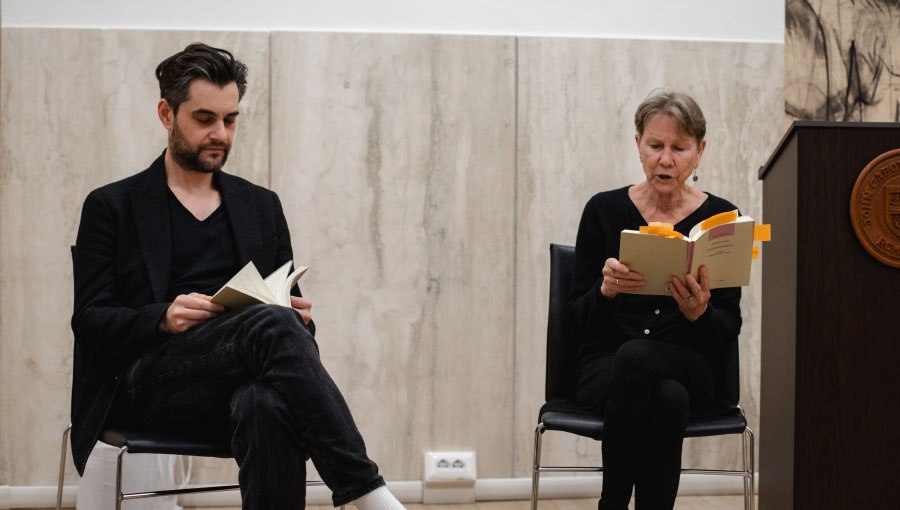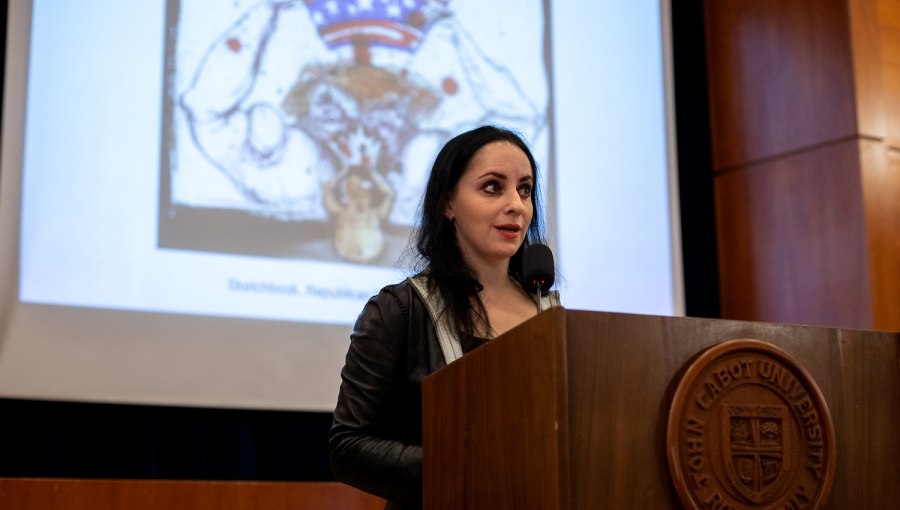Why Rome Matters: JCU Welcomes Professor Jean Yarbrough
On March 15th Professor Seth Jaffe welcomed Jean Yarbrough to his Introduction to Political Theory class for a discussion called “Why Rome Matters: Lessons from Political Philosophy.” The talk was sponsored by the Department of Political Science and International Affairs and JCU’s Rome Political Theory Colloquium.

Jean Yarbrough
Jean Yarbrough is Professor of Government and Gary M. Pendy Sr. Professor of Social Sciences at Bowdoin College in Maine, and is currently teaching The Idea of Rome: Republicanism from Cicero to Shakespeare.
Yarbrough started the discussion with a quote from French philosopher Montesquieu, “One can never leave the Romans.” She went on to explain that ancient Rome is a subject that many thinkers including Machiavelli, Montesquieu, and Roman philosopher Cicero spent a great deal of time trying to understand.
“Rome specialized in the mastery of the known world,” said Yarbrough. “It moves from a city to a republic, that rules over the entire Italian peninsula, but then like the moon launch, it leaves the bounds of earth and conquers everything in sight.” This attempt at world domination and the eventual fall of the republic is what Yarbrough believes to be a great fascination for many philosophers.
Throughout the lecture, Yarbrough discussed the simultaneous fall of the Roman Republic and the rise of the Roman Empire. She posed the question, “Did Rome rise to greatness by being just?” This question had varying answers. In the eyes of Cicero, Rome was just. Cicero wrote The Republic modeled after Plato’s Republic. In his book, Cicero writes “There is no daylight between what is honorable and what is beneficial to you.” Yarbrough explained that this means that “it is a mistake to think that the just and the beneficial have nothing in common.”
However, Yarbrough observed that as the republic expanded and then gave way to the empire, Cicero’s opinion changed, and this was reflected over the course of his book. He wrote, “We lost our way, we lost our customs, something went wrong, and justice doesn’t happen anymore.” Yarbrough noted that philosophers Machiavelli and Montesquieu shared this thought. They believed Rome’s need to conquer led the republic to become corrupt. “Both philosophers worried about what it means to have a power that is bent on ruling the world,” said Yarbrough.
In the end, Yarbrough tied together the thoughts held by these philosophers to say that the remarkable expansion of the Roman Republic is also what led to its inevitable decline. Yarbrough concluded by emphasizing that “Nothing lasts forever, empires rise, they become corrupt, they fall, and how do you ward off that decline for as long as possible?”





